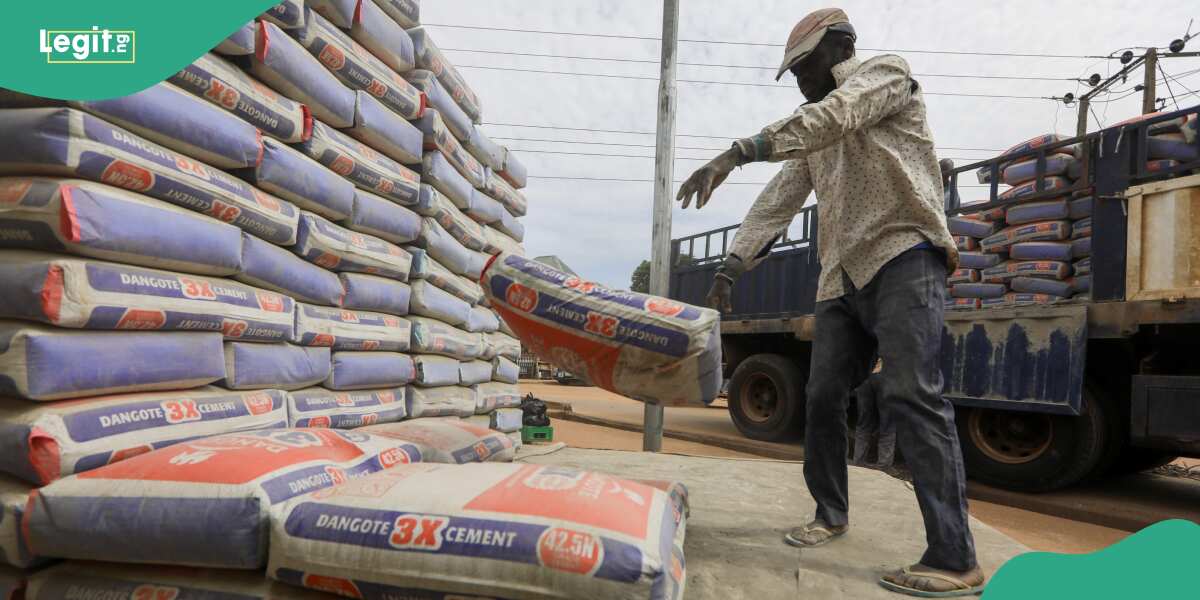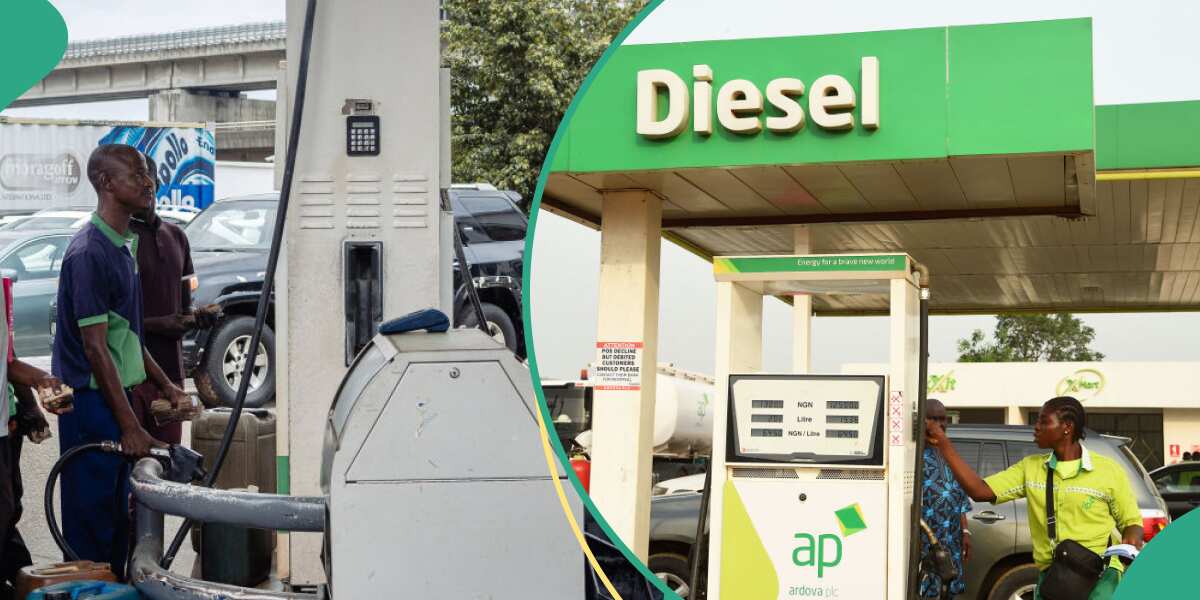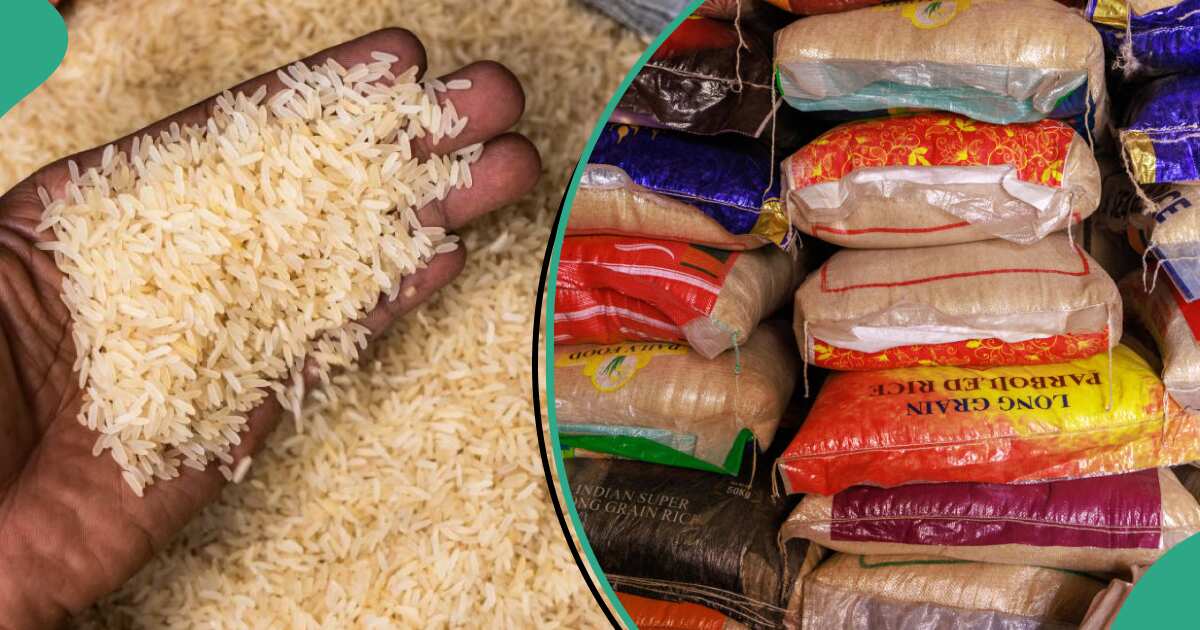- Cement prices dropped significantly in recent times to sell for N7,000 and N8,000 depending on the regions
- This is a massive drop from the earlier price of N10,000 and N15,000, which it sold some weeks ago
- Across different markets in Lagos, Abuja, Enugu and others, the price of cement is now cheaper
Legit.ng journalist Zainab Iwayemi has over three years of experience covering the Economy, Technology, and Capital Market.
Prices for 50kg bags of cement have dropped significantly from the range of N10,000 and N15,000 to between N7,000 and N8,000.

The construction industry experienced disruptions in February of this year due to the abrupt increase in cement and other significant building material prices.
This was particularly evident in the real estate sector, where numerous developers were forced to quit their work sites.

Read also
Marketers give reasons diesel will not sell for N950 despite Dangote refinery's price crash
PAY ATTENTION: Сheck out news that is picked exactly for YOU ➡️ find the “Recommended for you” block on the home page and enjoy!
Meanwhile, price drops have been confirmed across the nation, with bags now costing between N7,000 and N7,500.
Business day report showed that BUA cement is retailing for N7,500 to N7,800 per 50kg bag, depending on the location.
According to critical wholesalers and merchants, the price reduction results from poor demand and government assistance.
Recall that based on an agreement reached at a meeting between the federal government and significant producers during the height of the price surge, a bag of cement was agreed to sell between N7,000 and N8,000, depending on the locality.
Cement trader Collins Okpala clarified that the producers did not immediately adhere to this arrangement despite this.
As a result, Nigerians ceased to demand cement, and many construction sites were abandoned while developers decided to take a break and wait for prices to drop.

Read also
“Naira is going back to 1900/$.” Nigerians react as naira resumes loss after massive gain
He added:
“So, what has happened is an inter-play of demand and supply with price responding, which is Economics at work.”Price of cement across regions
A 50kg bag of Dangote cement in the FCT's Nyanya neighbourhood now costs between N7,000 and N7,500.
In contrast, BUA cement, previously sold for between N11,000 and N12,000, now costs between N8,500 and N9,500.
The product's price has also significantly decreased in Lagos. A dealer, Sebastiantin Ovie, said that the price has crashed from January levels in the Ojo area of the state, associating the decline with stronger naira and low demand.
He said:
The product's current price is between N7,000 and N7,500 per 50kg bag, depending on the brand. This is a significant drop from the average of N12,000 which most dealers were selling in February and March,”According to a dealer in the state's Agege district named Taofik Olateju, sales are increasing due to decreased prices. He noted that Nigerians stopped purchasing because the product cost N15,000 per bag at one point.

Read also
Nigerians react as rice dealers announce new prices, survey shows cheapest brands
He noted that depending on the brand and level of demand, the product now sells for between N7,500 and N8,000.
Similarly, in Enugu, the product costs between N7,200 and N7,500, depending on the brand and region.
The situation is slightly different in Owerri, the capital of Imo state. Innocent Okonkwo said that the price decline was also caused by poor demand, noting that the average cost for a 50kg bag in the state was N9,000.
While some market watchers are anticipating more price reductions, they are wary because manufacturers, distributors, and retailers still significantly influence end-user pricing.
They lament that, despite Nigeria's position as one of Africa's cement manufacturers, the product's cost keeps increasing, especially in light of the significant inflation affecting the market for building materials.
Another Abuja-based trader, Lucy Nwachukwu, emphasised the importance of procurement volume in determining cement pricing.
She also noted that prices had been stable for the past month, with the product retailing from N7,000 to N7,800, depending on the brand.

Read also
Marketers lament non-supply from Dangote Refinery, sell diesel at expensive price
SON sends message to Dangote, BUA
Legit.ng reported that Dr. Ifeanyi Chukwunonso Okeke, the Director General/Chief Executive of the Standard Organization of Nigeria (SON), instructed building engineers, cement manufacturers, and block makers to uphold standards to reduce the number of building collapse incidents in the country.
He said this during a one-day sensitisation training for block moulders in Abeokuta, Ogun State, on Thursday, April 18.
The DG, represented by the Director of Southwest Talatu Ethan, noted that building collapses pose a severe risk to Nigeria since they jeopardise the country's construction industry and overall progress.
Source: Legit.ng
ncG1vNJzZmivp6x7rbHGoqtnppdkr7a%2FyKecrKtdmrCwus6msGiln6OyunuQbm9yaWJqeqSxzJ6lrWWgp7aksYysnKWko2KwqbHAqWSlmZekwG6twa6hmmWdlr%2BssdOsZKehl5q%2Fqq2O